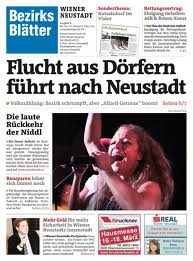 In the case of Print Zeitungsverlag GmbH v. Austria, Bezirksblatt, a regional newspaper distributed free of charge in in Tyrol in Austria, reported on an anonymous dissemination of a letter (printed in 300 copies) concerning two brothers who were both local politicians. The letter posed a number of questions about the brothers such as: “Would you buy a car from this man?”, “Is this man honest with his family?” and “Does this man have the necessary personal/professional qualifications?’’. The article in the regional newspaper was called “Anonymous campaign against M&M”. In the article the letter was published in its full length together with statements from the two brothers that the letters were meant to harm their political activities. Prior to the publication, the journalist who wrote the article had contacted the brothers to get their opinion on the matter. the brothers had let him know that they opposed publication of the letter.
In the case of Print Zeitungsverlag GmbH v. Austria, Bezirksblatt, a regional newspaper distributed free of charge in in Tyrol in Austria, reported on an anonymous dissemination of a letter (printed in 300 copies) concerning two brothers who were both local politicians. The letter posed a number of questions about the brothers such as: “Would you buy a car from this man?”, “Is this man honest with his family?” and “Does this man have the necessary personal/professional qualifications?’’. The article in the regional newspaper was called “Anonymous campaign against M&M”. In the article the letter was published in its full length together with statements from the two brothers that the letters were meant to harm their political activities. Prior to the publication, the journalist who wrote the article had contacted the brothers to get their opinion on the matter. the brothers had let him know that they opposed publication of the letter.
The Austrian courts found that the public interest in knowing about the anonymous campaign did not justify a reproduction of the letter in the article. The newspaper was ordered to publish the judgment and to pay 2,000 Euros in compensation to each of the brothers.
The European Court of Human Rights found that there had been an interference with the newspaper’s right to freedom of expression. When assessing whether the interference was necessary in a democratic society, the Court applied the criteria as set out in Von Hannover (no. 2) v. Germany and Axel Springer v. Germany. Both cases concerned the balance between freedom of expression and respect for private life. The criteria take the following elements into consideration:
- Contribution to a debate of general interest
- How well known is the person concerned and what is the subject of the report
- Prior conduct of the person concerned
- Method of obtaining the information and its veracity
- Content, form and consequences of the publication
- Severity of the sanction imposed
The Court acknowledged that the article contributed to a debate of general interest, that the persons concerned were well-known and that journalist had reported in an objective manner on the anonymous letter campaign. However, the Court also paid attention to the fact that ‘’there was no indication that C.M. and J.M., although often in the local media, sought the limelight or laid open any details regarding their professional lives as practicing lawyers or their private lives’’. In the Court’s view, the fact that the brothers had not themselves given any information about their private life or business to the public made it hard to justify publication of the letters.
Concerning the method of obtaining the information and its veracity it was not clear how the journalist had obtained a copy of the anonymous letter. However, he gave the brothers an opportunity to reply to the content. The Court noted that the article was published during election time for the tourism association and that the publication had made the letter available to the larger public. The Court further noted thath the brothers claimed that the publication had influenced their professional lives in a negative way. The Court did not find the sanction imposed excessive and concluded that there had been no violation of Article 10 of the Convention.
Comment
The judgments raises a number of concerns. Firstly, the present case, concerning defamation of politicians, is very different from the cases of Von Hannover II and Axel Springer which concerned the right to privacy of celebrities. The substance of the cases thus differs considerably. Perhaps the Court should have motivated why it applied the criteria from these cases. Secondly, even when applying the criteria from Axel Springer and Von Hannover II, the evaluation by the Court deems open to discussion.
The reasoning of the Court that the fact that the brothers had not made information about their private life or legal practice public would make it more difficult to justify the publication needs further explanation. Though the anonymous letters did also pose questions about the brothers’ family life and their abilities as lawyers, the content was connected to their credibility as political actors. Actors in a political environment can reasonably expect that their credibility is discussed openly in the public sphere or that attacks on their credibility may be reported on by the media. Whereas it is correct that the publication made the letter available to a larger public it should also be noted that the reporting was purely objective and that the brothers both got a chance to respond to the content. Concerning the sanction, it is interesting to note that the Court did not find it disproportionate, whereas in the case of Axel Springer v. Germany the Court found a far smaller sanction of 1,500 euros disproportionate. The present ruling makes it difficult to imagine under which circumstances it would be permitted to report on an anonymous letter campaign against politicians. An issue which, as also confirmed by the Court, is indeed of public interest.

